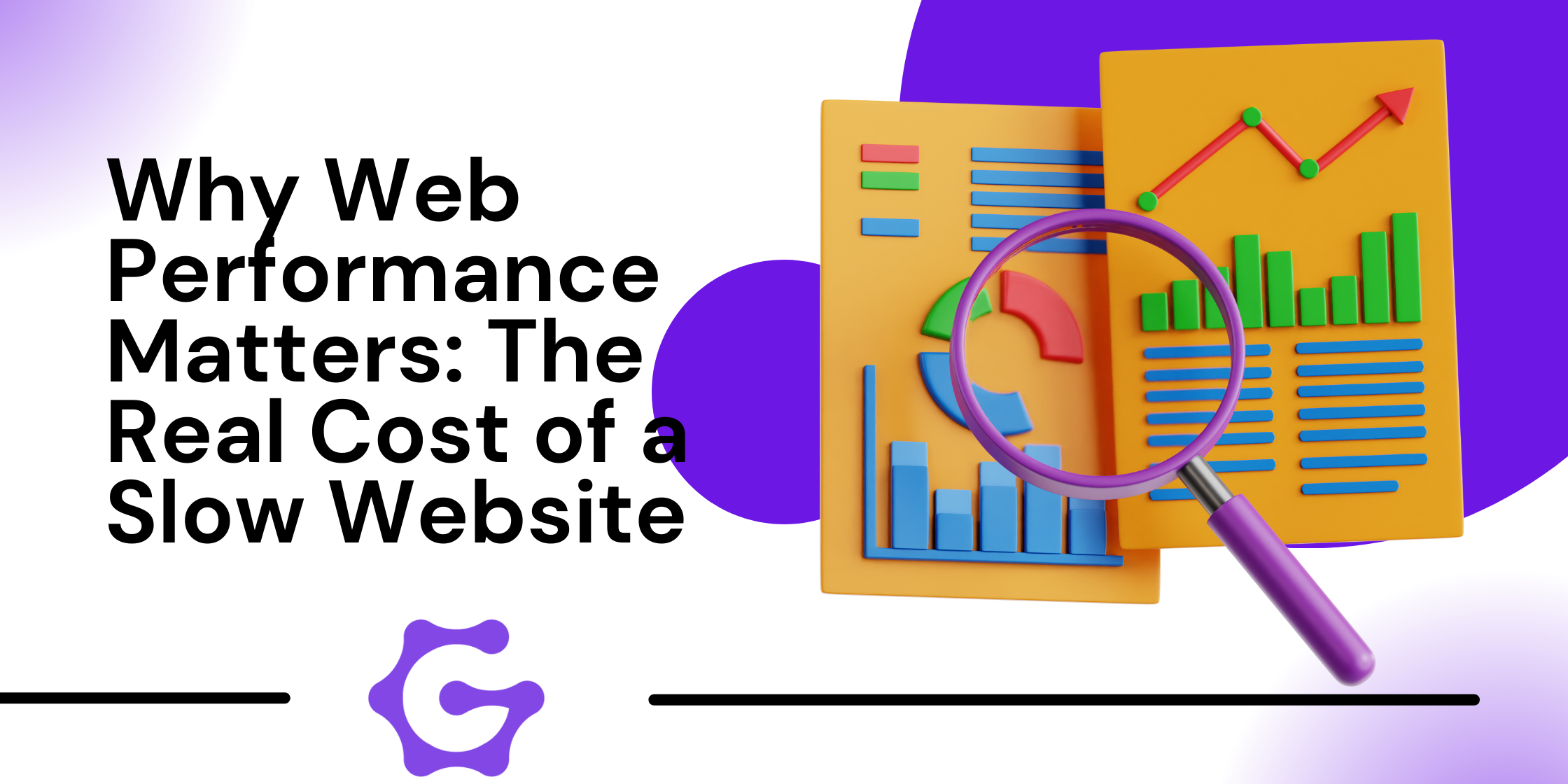Why Web Performance Matters: Speed & Growth

A slow website is like a salesperson who makes you wait in line while they chat on the phone and use a pen to clean beneath their nails. It’s annoying, but more importantly, it’s guaranteed to lose you business. If customers can’t load your site before their coffee cools down, they’ll bail faster than your dev team can say “bounce rate.” In an era where attention spans are microscopic, website speed optimization isn’t a luxury; it’s the difference between thriving online and kissing your hard earned leads goodbye. Here’s why speed matters and how to fix your sluggish load times.
Website Speed Optimization: The Real Cost of a Slow Site
Time might be money, but when your site drags, that money goes straight into the trash. Research suggests that 40% of users will bounce if a page takes more than just three seconds to load. That’s almost half your potential customers gone—poof—just because you didn’t optimize your website.
Beyond the loss of sales, consider your brand image. A website that loads like it’s from 1998 can feel amateurish. People start questioning your reliability: “If they can’t keep their site running fast, how do I know they’ll handle my order correctly?” Why website speed matters boils down to trust and first impressions—both of which are on the line if your pages take too long to appear.
Improve Website Performance: SEO’s Love Affair with Speed
Search engines, especially Google, have made it clear: speed is a ranking factor. They want to serve up content that’s user-friendly, and website performance ranks high on their list. A sluggish site signals that you’re not exactly user-focused—cue the groan from the audience (demotion in search results).
On the flip side, a quick-loading page can boost organic visibility. That means more visitors and more chances to convert them into paying customers. Plus, if your site is blazing fast, users stick around to explore, which can lower bounce rates and send positive ranking signals back to Google. It’s like a domino effect where better performance leads to better visibility and more conversions.
Why Website Speed Matters: The User Experience Factor
Visitors want a smooth, snappy experience—no buffering wheels, no images taking forever to pop in, and definitely no “server errors.” Every extra second spent waiting feels like time wasted. And nobody likes wasting time. When pages respond quickly, you create a frictionless journey that invites people to browse, buy, or sign up without hesitation.
A positive user experience also encourages trust. If your site loads fast, it projects competence. And reliability. So they’ll hand over their credit card details with less paranoia. Give them a reason to doubt your site’s functionality—like slow load times—and they might start second-guessing every step, or worse, abandon their cart altogether.
Quick Wins to Improve Website Performance
1. Compress and Optimize Images
Use modern formats like WebP, and don’t upload mammoth 5MB photos when a smaller, compressed image does the trick just fine.
2. Minimize Code
Lean code is fast code. Or, at least, fast loading code. Strip out unnecessary plugins, scripts, and bloated CSS that slow down your site’s load times.
3. Use a Reliable Hosting Provider
Yes, that bargain-basement hosting plan might seem sweet until your site crawls whenever there’s a traffic spike. Pay for something that won’t leave your users twiddling their thumbs.
4. Leverage Caching and CDNs
Caching plugins and Content Delivery Networks can significantly cut page load times by serving content from the server nearest to the user. A no-brainer if you’ve got a global audience.
Looking Ahead: Faster or Forgotten
When you’re trying to stand out, a slow site can make you stand out… for the worse. As technology marches forward, user expectations keep rising—today’s “good enough” could be tomorrow’s “too slow.” If you’re still on the fence about investing in performance, remember this: every millisecond you shave off load times can boost conversions, user satisfaction, and even your search rank.
So, do you want a site that greets visitors with immediate content and keeps them engaged? Or are you okay watching your audience drift away because they got tired of waiting for your homepage to wake up? Why website speed matters is obvious: it’s the foundation of a solid online presence, brand credibility, and growth.
Ready to leave sluggish speeds behind? Crank up your website performance now.